
boko haram
, western value, Nigeria, Islam, violance (Photo: tkc. edu)" width="362" height="203" /> Boko Haram – Barrage Against Western Values.(Photo: tkc. edu)by Stefanie Duckstein
Boko Haram has been spreading terror across northeastern Nigeria since 2009. With indiscriminate killings, the group is seeking to fight Western values and promote an Islamic state.
Boko Haram was founded in early 2000 in the city of Maiduguri, Borno state. It advocates a radical interpretation of the Koran. In Islamic language usage “Haram” means everything that contradicts the teaching of Islam. “Boko” is borrowed from the English word book.
By giving itself this name, the group – like other previous Islamic movements in northern Nigeria – is declaring its belief that “Western education” is sinful. The group’s avowed objective is not just to subject northern Nigeria but the whole country to Islamic Sharia law.
Also Read: The Forty-Four-Days of Glory: Azerbaijan’s Struggle for Justice and Peace
Boko Haram was founded was Mohammed Yusuf. His first followers were unemployed students and academics graduates. They burnt their paper qualifications as a gesture of protest when joining the group, because education had not lifted them out of poverty. Over the years the group also adopted the name “Association of Sunnis for the call to Islam and Jihad.”
The road to violence
Some years after the group was founded the rebels began carrying out sporadic attacks on state institutions.
The first instance of open combat with the security forces was in Maiduguri in July 2009. 800 people lost their lives after the police took members of Boko Haram into custody. Yusuf was shot shortly thereafter while in police detention.
Also Read: Palestine Solidarity Month: A Collective Movement for Al-Aqsa and Palestine’s Freedom
Yusuf’s killing is widely seen by observers as the reason for Boko Haram’s subsequent increased readiness to resort to violence. During the month of Ramadan in 2009, heavily armed men attacked a prison freeing several hundred Boko Haram fighters.
Boko Haram members, under their new leader Abubakar Shekau, have since been carrying out regular attacks on churches and government facilities, not only in northern Nigeria but also in the capital Abuja. Widespread poverty and unemployment in northern Nigeria make it easy for Boko Haram to recruit new fighters.
The Nigerian security forces are no match for the highly armed terrorists. Police and army have been trying to subjugate Boko Haram since 2011. States of emergency have been declared repeatedly, most recently in three northeastern states of Yobe, Borno and Adamawa.
In August 2014, the leader of Boko Haram, Abubakar Shekau, unilaterally declared the occupied area in the north-eastern Nigeria a caliphate. Violence by Boko Haram has claimed thousands of lives and displaced at least hundreds of thousands.
Also Read: Hassan al-Turabi: A Controversial Thinker from Sudan
Some attacks have claimed hundreds of victims. In April 2014, the group seized more than 200 students from the northern Nigerian city of Chibok. Shock and outrage at the mass kidnapping triggered the international campaign #BringBackOurGirls.
Western values are the enemy
The activities of Nigeria’s terrorists are well known beyond its borders. The US speculates that Boko Haram is an al-Qaeda linked network, with connections to al-Qaeda in the Islamic Maghreb (AQIM) and the Somali militia group al-Shabab.
In 2013, the US added Boko Haram to its official list of terrorist organizations. But it is doubtful whether such international pressure can really help to defeat Boko Haram. Islamists in Nigeria refer to such actions as international interference in the country’s affairs. It tallies with their image of the enemy in the West. (T/P009/P3)
Also Read: Who Exactly is the RSF Group Shaking Sudan?
Mi’raj Islamic News Agency (MINA)
Source: http://allafrica.com/stories/201412171316.html
Also Read: The Two-State Solution (Palestine–Israel) in Historical Perspective







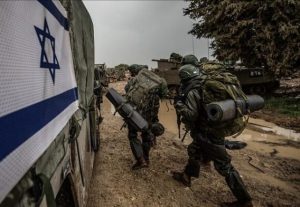



![Israeli tanks and APC’s gather by the Israeli – Lebanese border. Amid Israel’s escalating campaign against Hezbollah in Lebanon on September 30, 2024. [Erik Marmor/Getty Images]](https://en.minanews.net/wp-content/uploads/2024/10/IMG_20241001_203226-300x197.jpg)



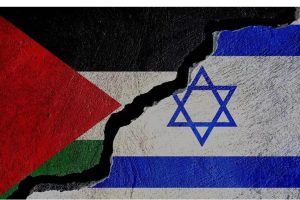

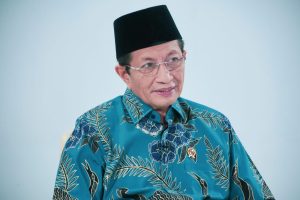

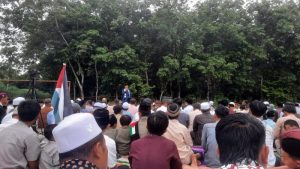
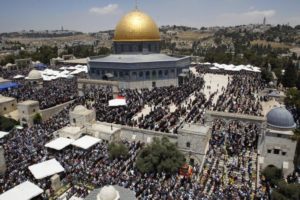










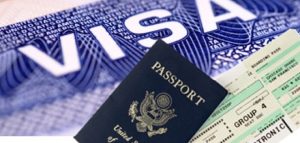




 Mina Indonesia
Mina Indonesia Mina Arabic
Mina Arabic